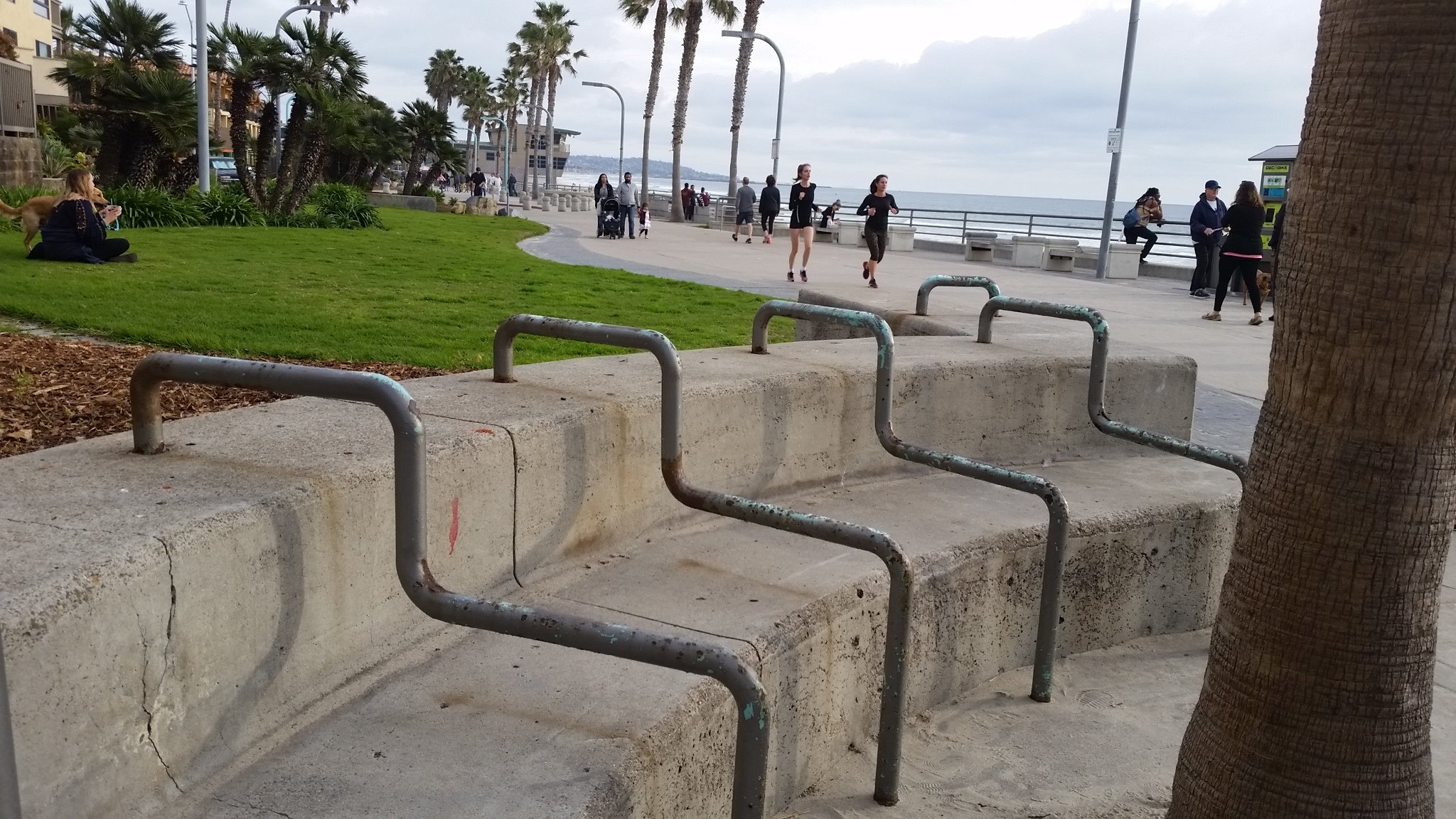
“You are not welcome”. The natural environment does this on its own as a mode of survival and protection against pests. Cacti have spines, roses have thorns, and the bark of a tree is a barrier against predators. They also welcome creatures such as bees and lady bugs with sweet smells and bright colors. Nature tends to keep pests and predators away while welcoming those that are productive to its survival. Humans do the same, take our beaches for example. Beaches are a hub of consumerism from tourism to reality they are without a doubt an important part of our economy. They are also considered to be a part of nature to be preserved, protected, and used by those who contribute. A walk along the beach will display multiple souvenir shops, restaurants, recreational shops, and places to enjoy looking out at the water. The seats and benches are perfect to sit in for short periods of time. These seats reflect the environment they are in such as the wooden benches along Main Beach in Laguna Beach, California or the concrete seats with oddly- shaped dividers in Pacific Beach, California. They are aesthetic to the area they are in and reflect the laid-back vibe of the area. Only, you can’t “lay back” on them. Just as nature has thorns, spikes, and bark to protect it from undesirables so do we, only it’s a subtler than you may realize. The “artfully” shaped dividers on the concrete steps overlooking the ocean are a defense created by the city against its own “undesirables”, the homeless. They are not considered contributors to the consumerism or beauty of the area and are in sense, a pest to the city. By placing barriers on resting areas along the beach it allows short term enjoyment of the area, but not long term rests. While it is considered a defense against the crime that is associated with homeless such as drug use and theft, it is also a blatant statement of “You are not welcome”. Unlike nature however, this does not solve the problem of homelessness it merely forces them to move along to the hidden areas of our society where we can ignore the problem as it is not right in front of us.







